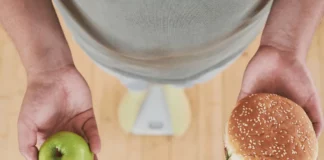Saving money can take some strange turns. People get creative when tightening their belts.
Imagine reusing tea bags or turning off every light to save pennies. Odd as these methods may seem, some do lead to real savings. Let’s explore the peculiar side of penny-pinching. From tactics that make us chuckle to those that make us nod in surprise, the quest to keep cash can get weird.
This post dives into the unusual money-saving methods people have concocted. Some might seem outlandish, but don’t be too quick to judge. Among the strange stories are hidden gems of frugality that might just work for you. So, prepare to be amused and maybe even inspired as we unveil the weirdest ways people have tried to save money—and the ones that actually deliver results.
Extreme Couponing: Clipping To Extreme Savings
Extreme couponing takes time but can save a lot of money. People collect coupons from many places. They use them to buy things for less money. Some even get items for free. It’s like a treasure hunt in stores.
Many families share stories of saving big. They talk about full carts costing almost nothing. It’s all about finding and using coupons smartly. This way of saving has helped many people spend less on groceries.
Learning from others can help. Many online groups and websites offer tips. They show which stores have the best deals. They also teach how to combine coupons for extra savings. It’s a skill that grows with practice.
Unusual Living Arrangements To Cut Costs
Some folks save money with tiny homes. These small spaces cost less to buy and keep up. Many tiny home lovers also live off-grid. This means they don’t pay for public utilities like water and power. Instead, they use things like rainwater and solar panels.
Another way to save is house hacking. People buy a place and rent out parts to others. This can cover the mortgage or even make money. Couch surfing is also an option. Travelers sleep on someone’s couch for free. In return, they might help with chores or share a meal.
| Method | Description | Potential Savings |
|---|---|---|
| Tiny Homes | Live in a small space, use less resources | Save on purchase, utilities |
| Off-Grid Living | No public utilities, use alternative sources | Cut utility bills |
| House Hacking | Rent out space in your home | Mortgage covered, possibly earn extra |
| Couch Surfing | Stay on couches while traveling | No hotel costs |
Diy Everything: From Soap To Furniture
Making your own soap can be fun. Save money by not buying store soap. Easy soap recipes are online. You can use simple ingredients. These ingredients are often in your kitchen. Things like coconut oil and shea butter.
Building furniture sounds hard. But it can be done! You need the right tools. And some wood, of course. You can make a simple chair or table. And you feel proud using something you made.
Remember, DIY has risks. You could mess up your soap. Or your chair might break. But practice makes perfect. And you learn new skills. Plus, you have fun stories to tell. You also keep more cash in your pocket!
Bartering Skills Instead Of Paying With Money
People now swap skills, not just items. This saves money. For example, a web designer might make a website for a baker. In return, the baker gives the designer lots of bread and cakes. This is smart because both get what they need without spending cash.
Before starting, both sides agree on what they will trade. They talk about what each service is worth. This way, no one feels cheated. They also set a timeline. This keeps both sides happy and on track.
Some use websites to find trading partners. This makes finding someone to barter with easier. Always be clear about what you offer and what you want. This keeps things smooth.
Remember, trust is key. Both sides must be honest and fair. This makes sure everyone is happy in the end.
Forgoing Conventional Transportation
Many people choose bikes or their own feet over cars. It saves money and is healthy. Cities often have bike lanes for safety. You can enjoy fresh air while pedaling or walking.
Public transport can be cheaper than a car. No need for gas, insurance, or parking fees. Buses and trains have monthly passes. They make travel easy without a car.
| Transport Type | Pros | Cons |
|---|---|---|
| Biking/Walking | Free, healthy, no traffic jams | Weather dependent, slower |
| Public Transport | Fixed cost, no maintenance | Fixed routes, wait times |
Conclusion
Saving money can often lead to unusual tactics. Some methods may seem strange but they work. Others are just odd and not effective. The key is to find balance. Try out simple tips that fit your lifestyle. Be smart with your choices.
Remember, saving money is about making wise decisions, not just unusual ones. Embrace practical strategies that have proven successful for others. Let their experiences guide you. Enjoy your savings journey, no matter how weird it gets!


